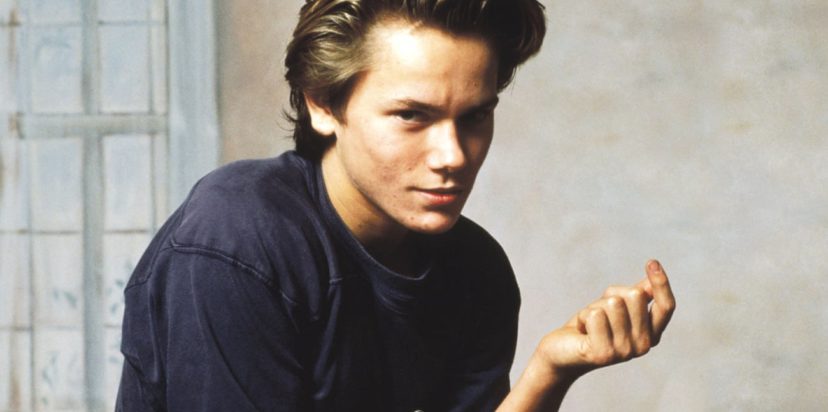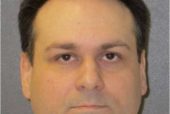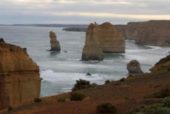The untold story of lost star River Phoenix – 25 years after his death
Published on: October 26, 2018

Phenomenally talented and famously caring, River Phoenix’s death shocked the world. His girlfriend Samantha Mathis talks for the first time about that awful night, and the man behind the myth
n the night of 30 October 1993, River Phoenix, his girlfriend, the actor Samantha Mathis, and his siblings Leaf (now known as Joaquin) and Rain, walked into the Viper Room, the LA club owned by Johnny Depp. Mathis thought they were there only to drop off his little brother and sister, “but when we arrived he said to me: ‘Oh, there are some people playing music tonight in the club who want me to play with them – that’s OK, right?’” she says.
It wasn’t OK with her: she thought they would be going straight to her house. “I knew something was wrong that night, something I didn’t understand. I didn’t see anyone doing drugs but he was high in a way that made me feel uncomfortable – I was in way over my head,” she says. But she knew he wanted to stay, and thought it wouldn’t be long – after all, some of his stuff was in the trunk of her car. Instead, she says, starting to cry: “Forty-five minutes later, he was dead.”
Next week is the 25th anniversary of that night, when the young actor who had always taken care to eschew all the usual celebrity cliches died the most cliched death of all, on Sunset Boulevard at the age of just 23. Phoenix had always hated fame but considered its one potential benefit was that he could use it for good and change the world, talking urgently in every interview about vegetarianism and the environment. It is a template many have tried to copy, but none succeeded like Phoenix, because he believed in his ideals more intensely than most people believe in anything.
This was the boy who once ran out of a restaurant in tears because his girlfriend, the actor and activist Martha Plimpton, ordered seafood. He was never entranced by the glitz of his own celebrity; when he was nominated for an Oscar in 1989, for his performance in Running on Empty, a journalist on the Oscars red carpet said to him: “It’s easy to get caught up in the Hollywood hoopla, isn’t it?” “Mmm, not for me, it isn’t,” he replied, looking a little surprised by the question. But reacting against success can be as risky as embracing it, because it can elide into self-loathing and confusion.
“I wish I could go someplace where nobody knows me,” he sobbed in his breakout performance in Stand By Me. After he died, his mother Arlyn (known as Heart) told Esquire magazine that her son shared that sentiment: “As River grew, he did become more and more uncomfortable being the poster boy for all good things. He often said he wished he could just be anonymous. But he never was. When he wasn’t a movie star, he was a missionary. There’s a beauty in that – the man with the cause, the leader – but there’s also a deep loneliness.”
Unlike most stars who die young, Phoenix isn’t just associated with early death but also precocious talent. Every young actor, from Leonardo DiCaprio to Timothée Chalamet, who shows early promise gets compared to Phoenix.
“When River came in to audition, it was obvious that he was just an amazing, amazing talent. He could play instruments, he was so bright and brilliant, he could do anything, really,” says Rob Reiner, who directed Phoenix in Stand By Me. Yet as talented as he was, Reiner had to coax the then 15-year-old to show his pain instead of bottling it inside.
“I said to him: ‘I want you to think about a time when someone, an adult who is important to you, let you down.’ He nodded and went away to think for a few minutes. The next take, in which he’s crying, is the one that’s in the movie. He never told me what he thought about – I assumed maybe one of his parents, but I don’t know. And when I watch the movie now, when he disappears at the end, it’s just very, very sad,” says Reiner.
Of the four child actors in the movie, only two – Wil Wheaton and Jerry O’Connell – got to adulthood unscathed. Phoenix and Corey Feldman – who has said he was sexually abused by someone in the film industry – were less lucky. I ask Reiner if he thinks that reflects the fate of child actors in general, that there’s a 50/50 chance they will turn out OK.
“I don’t know if it’s reflective of child actors exactly, but more about whether child actors have enough of a familial foundation to withstand the difficulties. When I saw Leonardo DiCaprio in This Boy’s Life and What’s Eating Gilbert Grape? I thought: ‘Wow, this kid is insanely talented, if he doesn’t have some kind of familial moorings, he’s going to fall off the deep end.’ So when we made The Wolf of Wall Street, I told him I’d been worried about him. He said: ‘Even though my parents divorced, I always had a good relationship with both of them.’ So he had that secure foundation,” says Reiner.
Phoenix also seemed to have a strong family connection during Stand By Me, so Reiner didn’t worry about him. “He had his mother there with him, and all his siblings, they were all there,” Reiner says, then pauses. “But I knew his father had problems with alcohol or something. I knew there were problems there.”
It is always a mistake to confuse an actor with his roles, but it is impossible not to notice that all of Phoenix’s best performances involved him playing a character with a complicated family background. In My Own Private Idaho, probably his greatest performance, he played Mike, a street hustler looking for his mother, who says: “If I had a normal family, and a good upbringing, then I would have been a well-adjusted person … Didn’t have a dog or normal dad anyway, yeah. That’s alright. I don’t feel sorry for myself. I mean, I feel like I’m, you know, well-adjusted.” Then there was Running on Empty, about a lonely teenager trapped in his family’s off-grid lifestyle. In The Mosquito Coast, he played the son of a man determined to build a utopia in Central America. In Stand By Me, his character resented being defined by his family’s reputation.
Back in the 1980s, it was known that Phoenix had an eccentric childhood, but, in retrospect, it feels as if few appreciated just how extraordinary it was. His parents, John and Arlyn were travelling counter-cultural hippies and when River was only three, the family joined the Children of God, a Christian cult that believed, among other things, that sex without boundaries was a form of love (Rose McGowan was also raised in the cult). The family moved from Venezuela to Mexico to Puerto Rico to spread the word of the cult, and Phoenix was sent out as a child to busk to raise money for food. He was also, he later said in an interview, sexually abused when he was four years old. Phoenix almost never discussed the Children of God, but his mother quoted him as saying: “They’re disgusting. They’re ruining people’s lives.”
Advertisement
The family was so entrenched in the cult that John was designated “the Archbishop of Venezuela”, but eventually they left it and moved back to the US. Phoenix never went to school; instead, his mother contacted the casting director at Paramount, and Phoenix began working at the age of eight. His siblings, Rain, Joaquin, Liberty and Summer, soon followed suit.
“We kinda miss [having a normal childhood] sometimes, missing our friends, but when we go some place we get to meet other people. But then you have to say goodbye to them,” the 13-year-old Joaquin told a journalist in 1987, when a TV crew visited the family home in Florida.
“I think the opportunities [in film] are just amazing, the things they’ve gotten to do and gotten confidence. I think they’re pretty much [normal] children,” smiled Heart.
The family was loving and close, but John was complicated. In photos of him from the 1980s, he is the spitting image of Joaquin, and River reportedly saw him more as a little brother than a paternal figure. John had problems with alcohol and, from an extremely young age, Phoenix felt as if he, not his father, had to support the family.
“River said to me in that last year: ‘I just have to make one more movie to put away enough money so my youngest sister can go to college,’” Mathis recalls. “I don’t know if that was true, but I remember him saying that.”
Mathis is talking to me on the phone from her apartment in New York. So much has been written about Phoenix over the years, but Mathis, who was with him when he died, has never spoken about him in depth before. “Except to my therapist,” she says, with a rueful laugh. Partly this has been out of respect to others who loved him, and partly because she was so traumatised by his death that she blocked out a lot of memories. But she recently saw, for the first time since Phoenix died, The Thing Called Love, in which they co-starred and his last completed film, and it got her thinking about things she hadn’t thought about in decades. So when she got a message from me soon afterwards saying I wanted to talk to her, it felt, she says, “like the universe wanted me to talk about him.
Advertisement
“We met when we were both 19, and he bummed a cigarette off me in an LA club. This sounds incredibly cheesy but I knew I would be with him one day. It just felt fated between us, and there was such chemistry,” she says. Three years after that first encounter, Mathis’s premonition came true when they were cast in The Thing Called Love.
“I think we recognised something in each other,” she says. Mathis had been raised by a single mother and had been acting since she was a teenager. “We came from very different families, but perhaps there were some broken parts in each other we recognised. We found safe harbour.”
After Phoenix died, various people who knew him talked about how they had seen the famously clean-living actor slipping into drug abuse over the years. Mathis, however, remembers his final year as very simple and happy, recalling the times they stayed with his family in Florida and Costa Rica, where they played music and cooked vegetarian food. “We just hung out with his siblings and got to be kids,” she says, crying again. “He was so good at hanging out.”
Perhaps in the absence of a father figure, Phoenix filled his life with quasi big brothers who tried to help him: Dermot Mulroney was one, Dan Aykroyd another, and Phoenix and Mathis stayed with the latter for a time at his place in Canada. Aykroyd had lost his best friend, John Belushi, to a drug overdose just over a decade earlier, and he reportedly urged Phoenix to stay away from drugs. Michael Stipe was another. “We met through my sister,” says Stipe. “She’d moved to Florida and became familiar with the whole family. I would visit her and hang out with them, and I have two sisters who I love very much, but River was like my little brother. We’re exactly 10 years apart and he really did feel like a brother to me.”
Phoenix’s mother had moved the children to Florida as they became more successful to keep them away from the seedier elements of LA life. But Phoenix still saw it as his role to save people, and as he started hanging out with various creative people in Los Angeles, he tried to help them come off heroin, going so far as to get one particular individual into rehab. “But when he needed help, they didn’t help him. In fact, in some cases, it was the opposite,” says Mathis. She says Phoenix was – as far as she knows – sober during their time together, “but I was very young then. In the days before he died, though, I knew something was going on.”
According to the 2013 book, Running with Monsters, by Phoenix’s friend Bob Forrest, Phoenix had spent the previous days on a massive drugs binge with Red Hot Chili Peppers’ guitarist, John Frusciante: “[River] stayed with John for the next few days, and probably didn’t get a minute of sleep. The drug routine stayed pretty consistent for all of us. First, smoke crack or shoot coke directly into a vein for that 90-second, electric brain-bell jangle. Then shoot heroin to get a grip and come down enough to be able to carry on a conversation for a few minutes before you start the cycle again,” Forrest wrote.
On the night of 30 October 1993, when Mathis realised Phoenix wanted to stay at the Viper Room, she went to the bathroom. “I knew he was high that night, but the heroin that killed him didn’t happen until he was in the Viper Room. I have my suspicions about what was going on, but I didn’t see anything,” she says. When Mathis came out of the bathroom she saw what she thought was Phoenix in a scuffle with another man, and the two of them being pushed out of the club’s side door by a bouncer. When she went out on to the street after them, she saw Phoenix drop to the ground and go into convulsions on the pavement. Thankfully, this was before the paparazzi had became ubiquitous so no one took photos, but it also meant no one was around to help.
“What have you done? What are you on?” Mathis shouted at the other man. “Leave him alone, you’re spoiling his high,” he retorted.
Mathis desperately tried to get back into the club to get help, but the side door was firmly shut. So she ran around to the main door, searched through the club for Phoenix’s siblings and they all dashed outside.
Joaquin called 911 for help in a phone call that would almost immediately be leaked to news stations: “He’s having seizures! Get over here please, please, ’cause he’s dying, please,” sobbed the 19-year-old. Phoenix had already flatlined by the time the paramedics arrived and was pronounced dead at the hospital. He had died from an overdose of cocaine and heroin.
After he died, everyone had a theory about how the beautiful boy with such great aspirations had gone so wrong. Today, Mathis remembers him as “sensitive and obsessive. He felt things on his heart very deeply.” Plimpton said after he died: “He was just a boy, a very good-hearted boy who was very fucked up and had no idea how to implement his good intentions.”
Phoenix was younger than James Dean when he died and his death was at least as seminal for his generation. Before he died, he looked like even more of a sure success than Tom Cruise, and his absence made space for other young actors to emerge – DiCaprio, most obviously.
“Leo told me he saw River the night he died, before he went to the Viper Room,” says Reiner. “And that might have been [a warning], because Leo never ever got into drugs.” DiCaprio ended up playing at least two roles that had been intended for Phoenix, taking the lead in The Basketball Diaries and Total Eclipse.
But the reason Phoenix is still revered today is not because of his absence but because he still feels so present. He was such a natural actor that his work remains amazingly undated and while being a missionary/actor might have cost him personally, to a very large degree he succeeded in his mission. One of the biggest ironies about Phoenix is that he hated celebrity and tried to reshape it, but in doing so he inadvertently coined many of the cliches that now define it: rare is the celebrity today who doesn’t talk about vegetarianism and the environment. He also made being an actor with a side project – his band, Aleka’s Attic – look cool instead of indulgent, because it suggested his creativity could not be contained in one artform. It is almost impossible to imagine, say, Kurt Cobain, who died the year after Phoenix, in today’s celebrity world, but it is extremely easy to imagine Phoenix living on a ranch in Idaho or California, acting in occasional indie movies, urging all of us to look up from our phones and think of the land, the sea and the sky.
“I’m looking at a photo of him now, oh wow …” Mathis says, briefly trailing off. “I think if River was still here, I think he’d be acting, directing, saving the environment, just living and hanging out. Oh gosh, wouldn’t that be nice?”






